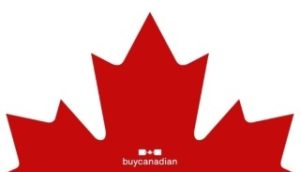M2 Universal yesterday added its voice to the fee-for-carriage debate by releasing research that shows a significant percentage of Canadians would not be willing to pay more to receive CTV, Canwest or CBC signals.
The media planning company felt it was important to discuss the impact on television audiences if a fee-for carriage was implemented, says Sara Hill, president, M2 Universal. A consumer pushback on extra fees is significant because it would result in lower audience delivery which in turn means reduced advertising revenue, the company states in a release.
According to M2’s April 2009 online survey of 1,000 Canadians, 42% said they would cancel their conventional channels rather than pay any more for them. Another 26% say they would cancel other channels to pay for them, while only 16% would pay more to keep them. French Canadians were more likely than English Canadians to say that they would pay for continued access to conventional channels, especially for CBC, where 23% say they would pay for the channel, compared to 13% of English Canadians.
Of those who would be willing to pay more (15% and 19% of English and French respondents respectively), 83% would be willing to pay up to $2 per channel. Viewers would be willing to pay a higher price for access to CBC in both English and French Canada.
‘One of the other reasons for doing this research, asking this question along with some others, was to take the debate of fee-for-carriage beyond the one-dimensional look that had been presented,’ Hill tells MiC.
For the past two years, the networks have been seeking to charge cable and satellite carriers about 50 cents per subscriber per month for their signals. In a special hearing of the CRTC last week, representatives from all major networks once again presented the case that the introduction of a fee-for-carriage, in which conventional broadcasters would charge distributors a fee to carry their signals, would help them in the current economic crisis.
CRTC estimates show that fee-for-carriage would be worth some $352 million to the television industry. For CTV, the proposal would generate about $56 million in new revenue, $72 million for Canwest and $56 million for Rogers. These are the largest amounts out of about 12 conventional broadcasters in total.
‘The networks argue that, as is the case with specialty, they want to be compensated for their signals and they need the money to support local programming. But what nobody seems to have taken into consideration is the likely consumer reaction to an additional cable/satellite rate hike,’ the M2 Universal release states.























